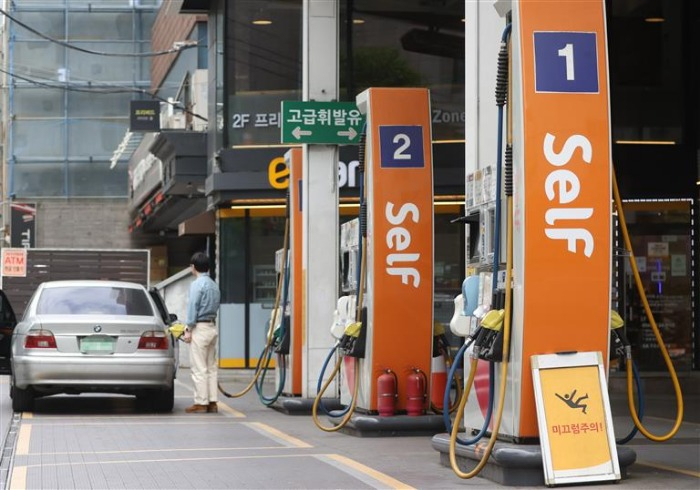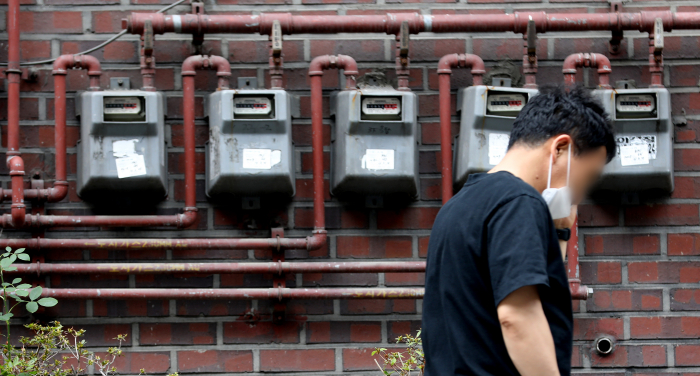Shares in oil refiners hit by windfall tax concerns
S.Korea's majority party is considering one-off taxes on oil refiners' extra gains from soaring oil prices
By Jun 22, 2022 (Gmt+09:00)
LG Chem to sell water filter business to Glenwood PE for $692 million


Kyobo Life poised to buy Japan’s SBI Group-owned savings bank


KT&G eyes overseas M&A after rejecting activist fund's offer


StockX in merger talks with Naver’s online reseller Kream


Mirae Asset to be named Korea Post’s core real estate fund operator



Two listed oil refining companies in South Korea saw a combined 1.6 trillion won ($1.2 billion) wiped off their market cap on Wednesday, after the main opposition party with a majority in parliament threatened to impose a tax on their extra gains created from soaring oil prices.
Shares in SK Innovation fell 5.23% to close at 208,500 won ($160). S-Oil, Saudi Aramco’s refining unit, finished 4.11% lower at 105,000 won. They underperformed the benchmark Kospi index, which lost 2.74% to 2,342.81, its lowest closing level this year.
On Tuesday, the Democratic Party’s floor leader Park Hong-geun said that the party will try to revise laws to cut gasoline and diesel prices by more than 200 won ($0.15) per liter in order for refiners to "share the pain" of fellow citizens suffering from surging consumer prices.
Echoing his remarks, the party’s policy planning committee chief Kim Sung-hwan emphasized that the country's four oil refiners posted their strongest-ever earnings in the first quarter, amounting to a whopping 4.8 trillion won in aggregate.
“We will come up with policy measures to minimize their extra profits, or calling on them to contribute the extra gains to a state fund,” Kim said.
The move by the majority party comes as domestic oil refiners are expected to sustain their strong earnings in the current quarter as rising oil prices boost their refining margins and valuations from oil inventories.
In the first quarter, operating profit at the country's top refiner SK Innovation trebled to a record 1.6 trillion won from a year earlier. S-Oil, the third-largest refiner in South Korea, reported more than doubling in its first-quarter profit to a record 1.3 trillion won from the previous year.
According to Samsung Securities Co., the four oil refiners in South Korea are likely to see a drop of 325 billion won in their monthly operating profits, if retail oil prices are cut by 100 won per liter. SK Innovation will likely see the biggest fall in its operating profit by 93 billion won per month.
Three other refiners -- S-Oil, GS Energy Corp. and Hyundai Oilbank Co. – are estimated to suffer a decline between 70 and 80 billion won in their monthly operating income.

However, the opposition party’s move met with cynical responses, prompting questioning over how the government will be able to calculate extra gains from the oil price rise and whether the government will make up for any losses triggered by a drop in oil prices.
In 2020, Korean oil refining firms posted a combined 5 trillion won in operating losses on the back of a sharp decline in global oil prices.
Meanwhile, South Korea will expand the scope of oil consumption tax cuts to 30% from the current 20% starting next month as part of efforts to stabilize domestic oil prices. Oil refiners will reflect the tax cuts in their retail prices.
Write to Ik-Hwan Kim at lovepen@hankyung.com
Yeonhee Kim edited this article
-
 AirlinesKorea airlines grounded by oil, currency, interest rates
AirlinesKorea airlines grounded by oil, currency, interest ratesJun 17, 2022 (Gmt+09:00)
2 Min read -
 EnergyS-Oil shuts processing units after one killed, nine injured in blast
EnergyS-Oil shuts processing units after one killed, nine injured in blastMay 20, 2022 (Gmt+09:00)
2 Min read -
 EarningsSK Innovation logs record profit in Q1 on strong refining biz
EarningsSK Innovation logs record profit in Q1 on strong refining bizApr 29, 2022 (Gmt+09:00)
2 Min read -
 EarningsS-Oil logs record earnings in Q1 on high crude, margins
EarningsS-Oil logs record earnings in Q1 on high crude, marginsApr 28, 2022 (Gmt+09:00)
1 Min read


